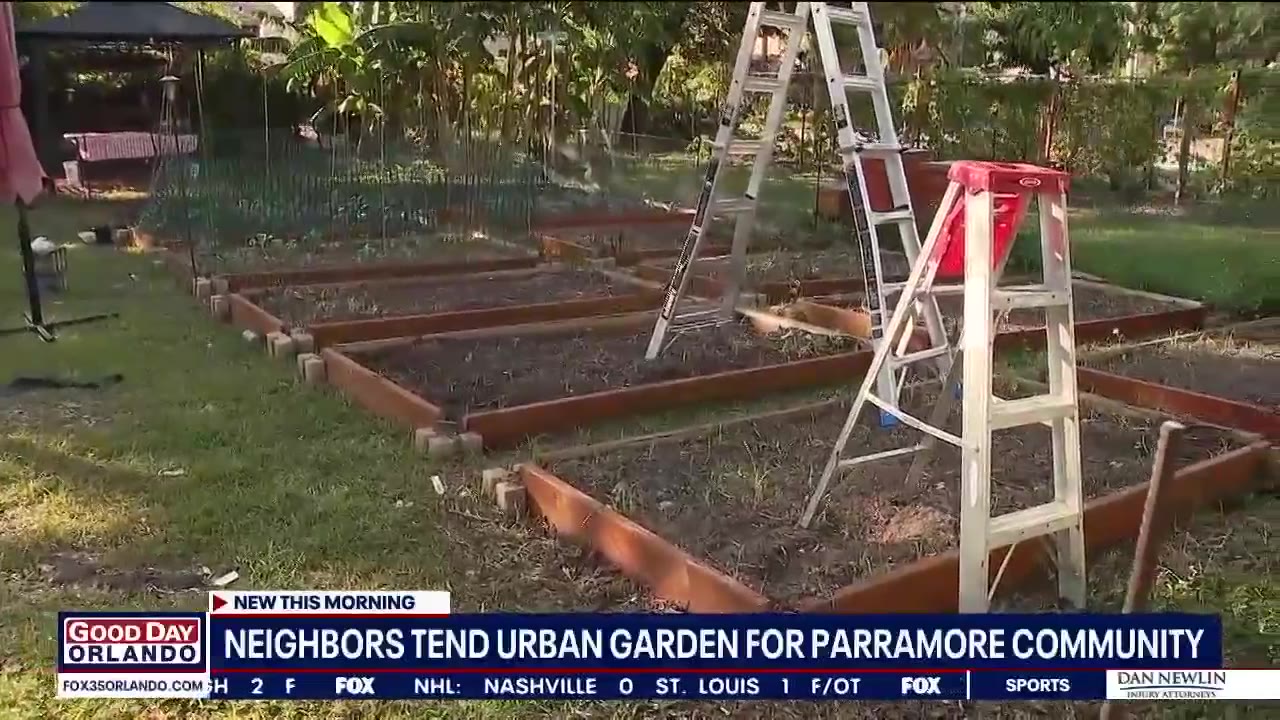Florida man creates urban garden, providing Orlando residents with access to locally grown produce

Florida man creates urban garden, providing Parramore residents with access to locally grown produce
When Ray Warthen first started the garden in Parramore, it was full of trash and debris and the homeless who often slept there. But Warthen was determined to make the garden grow. His mission: making sure residents, whose average income he says is about $17,000 a year, have access to organic, locally grown produce.
ORLANDO, Fla. - Put on your track shoes if you want to keep up with Ray Warthen. The 39-year-old never stops moving. He moves through his urban garden in Orlando's Parramore neighborhood, pointing out the food there with a dizzying speed.
Warthen buzzes just about as fast as the bees as he moves through this plot of land where hope grows as plentiful as the food planted there.
When Warthen first started the garden, it was full of trash and debris and the homeless who often slept there. But Warthen was determined to make the garden grow.
"We had porta johns here, that's it. There was nothing here," Warthen said. "There was literally dead space. We even had to put in our own power poles."
Warthen slept on the land many nights to make the garden grow. His mission: making sure Parramore residents, whose average income he says is about $17,000 a year, have access to organic, locally grown produce.
"I went across the street to the housing unit over there and I said what do you all want to grow here and Ms. Gladys said, ‘baby I need my collard greens and Miss Williams said I need my mustards.’ So I grew what they wanted. Why would I plant chives? They don't eat chives and mushrooms and squash. I didn't plant things that people won't eat," Warthen said.
MORE NEWS:
- Mississippi State football coach Mike Leach has died at 61
- Dog abandoned at Orlando hotel reunited with family 7 years after going missing in Texas
Warthen said the garden really took hold during the COVID-19 pandemic when the schoolchildren in Parramore, who would eat at school, found themselves without meals.
"When there's no more school, school's out for a whole year, guess what? There's no more meals, so we handed out garbage bags, tall kitchen bags of produce to the community and that's when people realized, ‘holy crap this garden is really here for us’ and that's what gained us (the) respect of the community itself."
When asked what it is about the garden that gives him hope, Warthen said, "Well, I always tell people crime exists out of lack of opportunity so 40% of this garden, everything you see here from the wood structure shed was built by the homeless right back here."
His commitment to the homeless in Parramore made him so respected. They fiercely protect the space, and it's been dubbed the "Emerald of Parramore."
"I call them my street pharmaceutical sales representatives," Warthen said laughing. "They help protect the garden as well, and they say 'Ray, don't ever worry about the garden,' and that's a sign of respect."
His legacy is a sign of respect as well. Warthen is a fifth-generation farmer. It's in his blood.
His great, great uncle is Julius July Perry, the Ocoee farmer who was murdered 100 years ago by a white mob for defending the voting rights of black residents. Warthen sees this as a continuation of that legacy and the Greek proverb that says a society grows great when someone plants a tree whose shade they will never sit in.
"My hope for the future is that we are able to minimize food deserts," Warthen said. "People always ask me, ‘Ray why do you push so hard,’ and I say for me, my other passion is my family and my children cause long after I'm gone, I want my children to have the same opportunity, name and respect put on them. So when they realize that Ray Warthen is their daddy, they say ok, respect."

